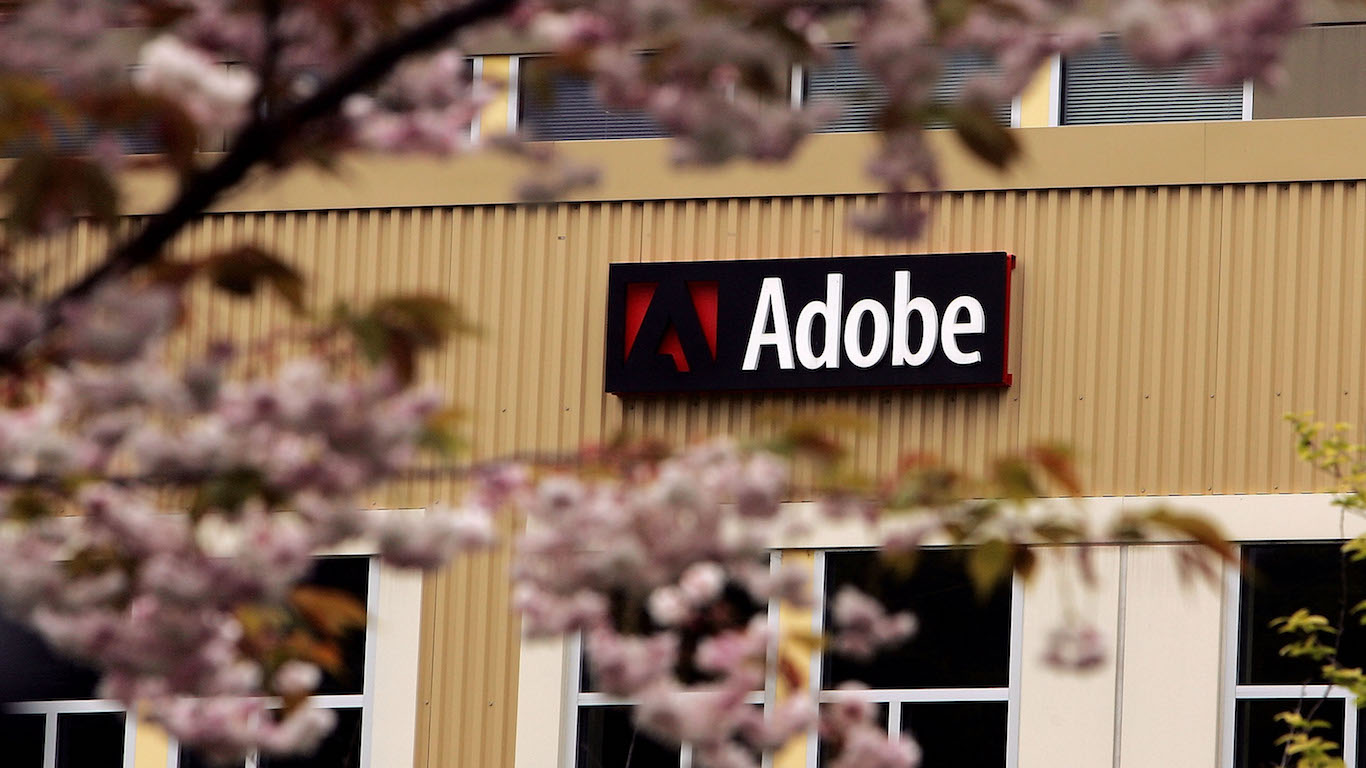Technology
Jefferies Very Positive on 4 Leading Software Stocks for 2020

Published:
Last Updated:

Despite the recent volatility, all the major indexes are still up by double-digits for 2019. With active managers outperforming passive managers for the first time in years, many investors are looking for solid stock ideas for the rest of this year and into 2020. With technology still expected to be a sector leader, and software far less cyclical than other areas within the sector, it makes sense for growth investors to look at the leaders.
Last week, four top software stocks were rerated with an assumption of coverage from Brent Thill at Jefferies. While positive overall, the selections are more defensive, and with good reason. With valuations stretched, and the overall macro outlook somewhat more dicey, Thill “[f]avors the large cap names which combine strong fundamentals and multiple support and a preference for applications where there is less chance of being disrupted by Amazon.”
All four large-cap selections are rated Buy at Jefferies and make sense for long-term growth accounts with a degree of risk tolerance.
[in-text-ad]
This high-profile old-school software stock has backed up in price and is offering the best entry point in some time. Adobe Systems Inc. (NASDAQ: ADBE) is a diversified software company that offers electronic document technology and graphic content authoring applications to creative professionals, designers, knowledge workers, high-end consumers, developers and enterprises.
Top Wall Street analysts see the company benefiting from artificial intelligence, predictive analytics, automation bots, speech recognition and natural language processing and image recognition. Some on Wall Street see earnings increasing a solid 30% or more for 2020. Jefferies has felt for years that the company deserves a premium multiple to its peers due to Adobe’s strong competitive position in the creative space and above-average growth prospects.
The Jefferies price target for the shares is $340, and the Wall Street consensus target is $289.79. The shares traded of Friday’s close at $278.29.
This company hits all the metrics in the technology sector for accounting needs. Intuit Inc. (NASDAQ: INTU) is a provider of business and financial management solutions for small and medium-sized businesses, financial institutions, consumers and accounting professionals.
Products and services include TurboTax, QuickBooks, Quicken, small business financial management and payroll processing, personal finance and tax preparation and filing and online banking services through its Digital Insight acquisition. Intuit also offers products on a software as a service (SaaS) platform across all its business divisions.
Intuit has served small businesses and accountants with QuickBooks for more than 20 years. The company was an early innovator in cloud accounting when it first launched QuickBooks Online in 2001. QuickBooks Online has more than a million paying subscribers, cementing its market leadership as small businesses shift to the cloud.
Over 40% of small businesses are using either Quickbooks Online or Quickbooks Desktops, while 35% are using Excel or manual paper accounting. This highlights the underlying opportunity for the company going forward.
Investors receive a 0.79% dividend. Jefferies has a $320 price target, while the consensus target is $289.79. Shares closed on Friday at $270.07.
This top old-school technology stock saw posted all-time highs this year, and the company has a massive $133.8 billion sitting on the balance sheet. Microsoft Inc. (NASDAQ: MSFT) continues to find an increasing amount of support from portfolio managers, who have added the software giant to their holdings at an increasingly faster pace so far this year and all of last.
Many Wall Street analysts feel that Microsoft has become a clear number two in the public or hyper-scale cloud infrastructure market with Azure, which is the company’s cloud computing platform offering. Some have flagged Azure as a solid rival to Amazon’s AWS service, while others maintain that Microsoft is discounting Azure for large enterprises, such that Azure may be cheaper than AWS for larger users. The cloud was big in the second-quarter earnings report, which was outstanding.
[in-text-ad]
Microsoft shareholders receive a 1.45% dividend. The $160 Jefferies price target compares with both the $156.77 posted consensus price objective as well as the most recent share price of $139.68.
This top company has reported solid fiscal 2019 results so far as billings have drastically improved, and this past quarter was no exception. Salesforce.com Inc. (NYSE: CRM) provides enterprise cloud computing solutions, with a focus on customer relationship management to various businesses and industries worldwide. It has one of the most valuable tech brands in the world.
It offers enterprise cloud computing applications and platform services, including Sales Cloud that enables companies to store data, monitor leads and progress, forecast opportunities, gain insights through relationship intelligence and collaborate around sales on desktop and mobile devices.
The company also provides Service Cloud, which enables companies to deliver personalized customer service and support, as well as connect their service agents with customers on various devices, and Marketing Cloud, which enables companies to plan, personalize and optimize customer interactions.
In addition, Salesforce announced earlier this month that it has completed its acquisition of Tableau Software, bringing together the world’s number one customer relationship management company with the world’s number one analytics platform.
Jefferies has set its price target at $171. The consensus target was last seen at $182.72, and shares ended the week trading at $149.37.
These top companies have had substantial runs over the past couple of years, and with third-quarter earnings about to hit the tape, it may make sense to buy partial positions and see how the results come in. The good news for investors is that they are all leaders in their specific categories and should remain that way for years.
Thank you for reading! Have some feedback for us?
Contact the 24/7 Wall St. editorial team.